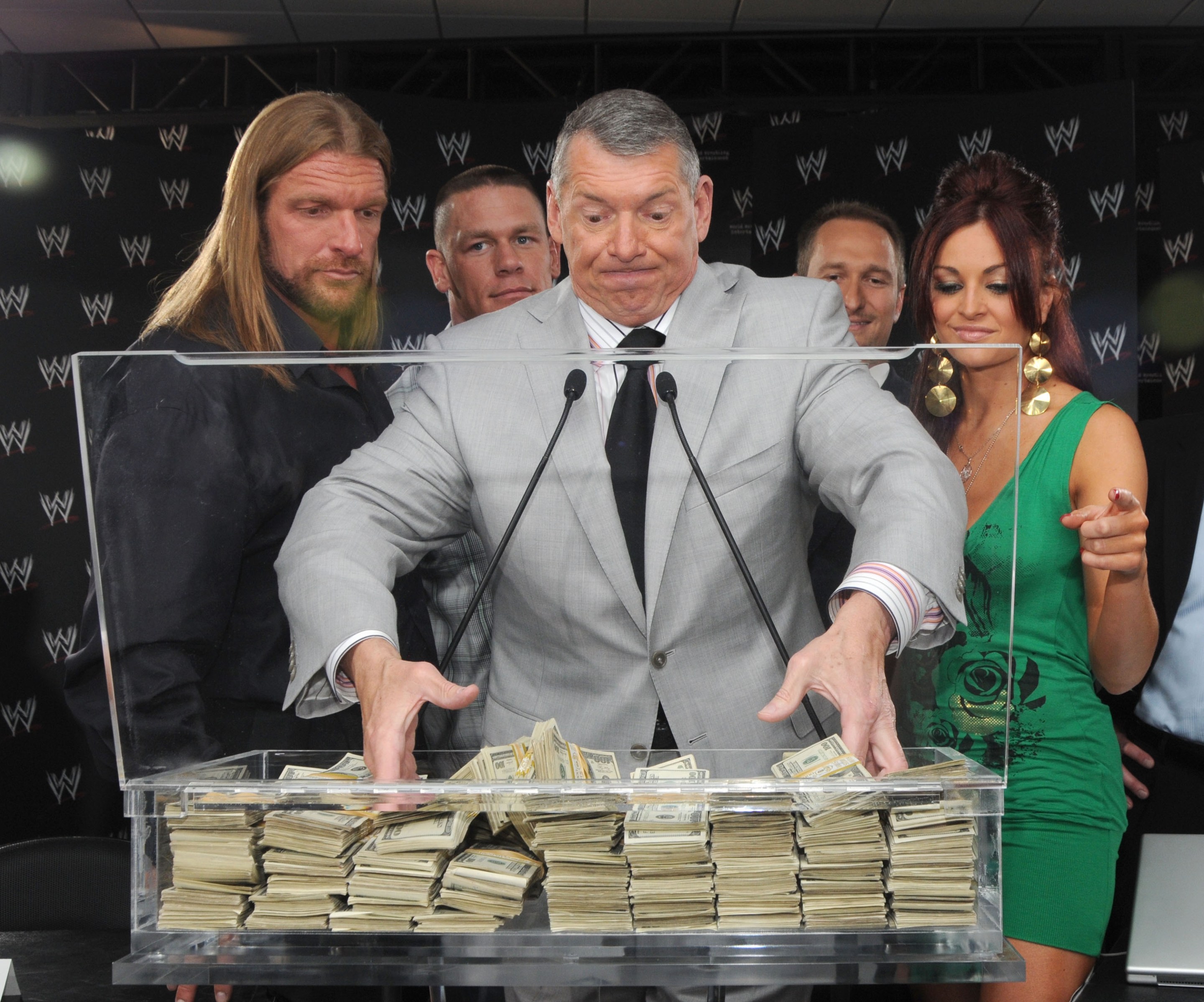Vince McMahon's forced "retirement" from the wrestling company he helped make into an international behemoth lasted less than half a year. After reports last month that the 77-year-old was getting antsy and regretful about exiting the business where he'd spent his entire life, McMahon on Thursday used the majority voting power he retained through his stock to put himself and two others back on the WWE board of directors, according to an SEC filing.
McMahon was exiled from the company in July 2022 due to hush-money payments he made to cover up affairs and alleged sexual misconduct. A report from the Wall Street Journal that month found that he had paid $12 million over 16 years to four women formerly affiliated with WWE. The women included a former wrestler who alleged that McMahon coerced her into oral sex, then demoted her and eventually let her contract expire after she resisted further advances; a WWE contractor who showed the company that McMahon sent her unsolicited nude photos and said he sexually harassed her at work; and a former manager and a former paralegal, who both said McMahon paid to keep his affairs with them quiet. Together, they described a pattern in which McMahon would take advantage of and abuse female employees and then dip into his wallet to avoid facing consequences. Public allegations of sexual misconduct against McMahon date back to 1992, when former WWF referee Rita Chatterton said she had been raped by McMahon in 1986 after she refused oral sex with him.
Because WWE is a publicly traded company, McMahon's downfall was not the allegations of abuse themselves but the unrecorded expenses that came alongside them. In August, WWE announced that an independent board had found nearly $20 million in unrecorded payments. The Journal then reported that $5 million of that money was unrelated to the hush payments and instead went to Donald Trump's charity in conjunction with appearances Trump made for WWE. By that time, McMahon was already gone. He had temporarily stepped down as CEO and chairman in June amid the investigation, and even though he immediately appeared on Smackdown as a kind of middle finger, he left the company altogether a month later without any on-air ceremony or fanfare. (His daughter and current chairwoman/co-CEO Stephanie McMahon did lead a "Thank you Vince" chant in his absence.)
WWE's stock price went up 20 percent in the first few hours of Friday, because McMahon has stated that he wants to oversee the exploration of a sale of the company based around the upcoming renegotiation of its media rights. WWE is currently in a five-year, $1 billion deal with Fox for Smackdown and a five-year, $1.325 billion deal with NBCUniversal for Raw, both of which went into effect in 2019. In addition, WWE made another billion in 2021 with a five-year rights deal with Peacock for its back catalog and its live pay-per-views (though that's kind of an outdated term), not to mention the truckloads of cash the promotion gets from Saudi Arabia for doing a couple of shows there each year. It is basically impossible, no matter who's running it, for WWE not to turn a big profit, and selling now before the TV-rights bubble fully bursts feels like the savvy move. But according to the Journal, McMahon has told that board that he'll use his remaining voting power to block any rights deal or sale that does not include his direct involvement as executive chairman.
Though the press release carefully coats his actions in phrases like "necessary to maximize value for all WWE shareholders," McMahon's renewed presence creates a lot of uncertainty in a company that had felt uncharacteristically stable in his absence. While McMahon gets credit for turning WWE into a widely recognized synonym for pro wrestling over his 40-year tenure as chairman and CEO, his last years in charge were marked by diminishing ratings and creative sloppiness. The gargantuan rights deals allowed WWE to rake in unprecedented profits as they provided something close to a sure thing in a chaotic TV and streaming landscape. But the shows themselves were confused and often barely coherent from week to week, reflecting both McMahon's capriciousness with scripts and his inability to see beyond his cloistered septuagenarian point of view.
On the creative side, McMahon was succeeded by his son-in-law Paul Levesque, better known to fans as Triple H. Levesque's tenure running Raw and Smackdown has been a warmly received critical success that's also generated impressive ticket sales for its big events. As he's eliminated McMahon's worst habits and hang-ups, Levesque's product has brought back many recently fired wrestlers, stayed disciplined with its long-term storytelling, and generally featured a more natural presentation that doesn't have all the markings of an aggrieved rich person breathing down everybody's necks.
Perhaps a year ago there were businesspeople who believed that WWE could not succeed without the singular genius vision of Vincent K. McMahon, but the last several months have proved that, if anything, he was holding the company back. While it's possible that everyone involved will swallow their misgivings to cash in big on a sale, a pair of resignations on the board already and the presence of so much talent that McMahon had previously fired make it tough to imagine this going smoothly. Regardless, you can score another win for the embattled-rich-asshole playbook that McMahon clearly regretted not following last summer: Never apologize, never admit fault, and eventually your money will force other people to bend to your will.






